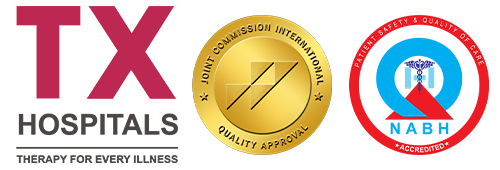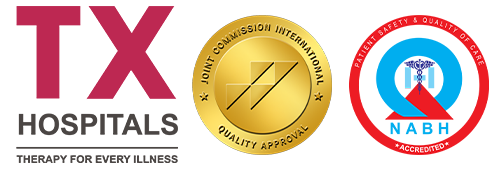Top Obstetric Medicine Hospital in Hyderabad
General Medicine Services
TX is one of the best pregnancy care hospital in hyderabad, complete range of health check programs for children, adults, pregnant women and the elderly people; Executive Male Health Checks; Executive female health checks; Comprehensive health check programs for middle-age men and women; Basic health check programs for men and women; Cardiac health checks; Heart disease screening; gynaecological cancer screening tests – breast cancer, cervical cancer, uterine cancer; Prostate cancer screening for elderly men; Pre-operative tests and screening; major surgical profile tests; colon cancer screening tests; prophylactic vaccination for adults – HPV vaccines, meningococcal vaccines and dietary counselling for heart, kidney disease and obese individuals and post-menopausal care.
LIFESTYLE DISEASES
Infectious Diseases
Infectious diseases are illnesses caused by harmful agents that get into your body from the outside. The most common causes are viruses, bacteria, fungi and parasites. Infectious diseases usually spread from person to person, through contaminated food or water and through bug bites. Some infectious diseases are minor and some are very serious. Malaria, Dengue fever, viral fevers and all bacterial, fungal diseases of various organs of body can be treated as infectious diseases.
Symptoms
Symptoms of infectious diseases depend on the type of illness. Fungal infections usually cause localized symptoms, like rash and itching. Viral and bacterial infections can have symptoms in many areas of your body, like:
- Fever.
- Chills.
- Congestion.
- Cough.
- Fatigue.
- Muscle aches and headache.
- Gastrointestinal symptoms (Diarrhea, Nausea, Vomiting).
It’s important to see a doctor if you have any chronic (ongoing) symptoms or symptoms that get worse over time.
When to see a doctor
Seek medical attention if you:
- Have been bitten by an animal
- Are having trouble breathing
- Have been coughing for more than a week
- Have severe headache with fever
- Experience a rash or swelling
- Have unexplained or prolonged fever
- Have sudden vision problems
Some common types of infectious diseases and their treatments
There are many types of infectious diseases, and treatment depends on the specific cause of the disease. Here are some common types of infectious diseases and their treatments:
Bacterial infections: Examples include streptococcal pharyngitis (strep throat), tuberculosis, and urinary tract infections. Treatment usually involves antibiotics.
Viral infections: Examples include the common cold, flu, measles, and human immunodeficiency virus (HIV). There is no cure for most viral infections, but antiviral medications can help to reduce the severity and duration of symptoms.
Fungal infections: Examples include thrush, ringworm, and aspergillosis. Treatment may involve antifungal medications, such as topical creams or oral medications.
Parasitic infections: Examples include malaria, toxoplasmosis, and Giardiasis. Treatment may involve antiparasitic medications, such as anti-malaria drugs.
Prion diseases: Examples include Creutzfeldt-Jakob disease and mad cow disease. There is currently no cure for prion diseases, but supportive care can help to manage symptoms.
It is important to note that prompt and accurate diagnosis and treatment is crucial for the effective management of infectious diseases. In some cases, preventive measures, such as vaccines or good hygiene practices, can also help to reduce the risk of transmission and acquisition of infectious diseases.
Safe food handling habits help prevent certain infectious diseases.
- Wash your hands thoroughly with soap and water before, during and after food preparation.
- Peel or thoroughly wash all fruits and vegetables.
- Freeze meats at 0⁰F (-18⁰C) until ready to thaw.
- Cook meats to a safe temperature before eating.
- Wash food preparation surfaces and utensils with soap and water after use.
- Don’t eat uncooked or undercooked seafood.
- Don’t drink untreated water.
- Don’t drink unpasteurized milk.
OBSTETRICS MEDICINE
A branch of medicine that specializes in the care of women during pregnancy and childbirth and in the diagnosis and treatment of medical diseases during pregnancy and child birth.
Some of the most common conditions they help manage are:
- High blood pressure or pre-eclampsia.
- Gestational diabetes.
- Infectious diseases during pregnancy.
- Thyroid disorders during pregnancy.
- Infections.
- Muscle aches and pains.
- Genetic disorders
Functions of an obstetrician
obstetricians especially deal with pregnant mothers. The procedures and functions that they perform include:-
- Normal delivery and performing essential assisting steps. Obstetricians are responsible for working in collaboration with midwives to monitor and assist normal delivery in a woman during labour.
- Their functions include facilitating delivery by performing episiotomy that involves placing strategic cuts over the perineum of the pregnant mother to enlarge the birth canal.
- Sometimes prolonged labour might require assistance to speed up the process in order to reduce maternal fatigue and fetal distress (rising heart rate and possible brain damage to the baby). This uses techniques like forceps delivery and vacuum assisted delivery.
- Caesarean (or C) section that requires surgical removal of the baby from the mother’s womb to reduce the complications that arise during labour. These complications in turn may cause death or damage to the newborn unless delivery is expedited with C section.
- Diagnosis and treatment of ectopic pregnancy. Ectopic pregnancy occurs when the fertilized ovum gets implanted in any place other than the womb. Commonly it gets implanted in the fallopian tubes.
Critical Care
Critical care, as the name suggests is critical in the survival of any seriously ill patient. These patients need the treatment decision of well-experienced doctors, monitoring by high-tech equipments, and care by experienced and empathetic staff. And the critical care facility of TX Hospitals is a perfect mix of all these.
Conditions where a person would need critical care:
- Heart attack.
- Stroke.
- Poisoning.
- Pneumonia.
- Surgical complications.
- Trauma from road accidents.
- Burns.
- Allergic reactions.
The Critical Care Department in TX Hospital is a specialized unit that provides comprehensive and continuous care for critically ill or injured patients. This department is equipped with advanced medical equipment and staffed by healthcare professionals with specialized training and experience in treating patients with life-threatening conditions such as heart attacks, severe infections, traumatic injuries, and organ failures. The goal of critical care is to stabilize patients, prevent further deterioration, and help them recover from their illnesses or injuries.
An intensive care unit (ICU), also known as an intensive therapy unit or intensive treatment unit (ITU) or critical care unit (CCU), is a special department of a hospital or health care facility that provides intensive care medicine.
Intensive care units cater to patients with severe or life-threatening illnesses and injuries, which require constant care, close supervision from life support equipment and medication in order to ensure normal bodily functions. They are staffed by highly trained physicians, nurses and respiratory therapists who specialize in caring for critically ill patients. ICUs are also distinguished from general hospital wards by a higher staff-to-patient ratio and access to advanced medical resources and equipment that is not routinely available elsewhere. Common conditions that are treated within ICUs include acute respiratory distress syndrome, septic shock, and other life-threatening conditions.
Patients may be referred directly from an emergency department or from a ward if they rapidly deteriorate, or immediately after surgery if the surgery is very invasive and the patient is at high risk of complications.







